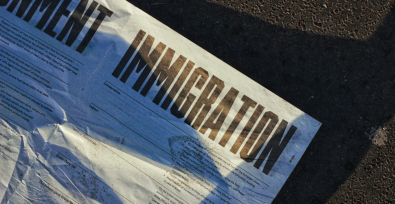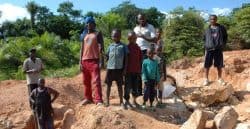An investigation by the New York Times has uncovered how U.S. federal agencies and White House officials ignored repeated warnings that migrant children faced serious risk of trafficking and exploitation. Children were knowingly released to sponsors flagged as presenting a risk to children while staff members who raised the alarm found themselves out of a job.
In February, the New York Times exposed how unaccompanied migrant children work hazardous jobs in factories in order to pay sponsors for food and accommodation, or to pay smugglers who brought them into the country. As a result, these children are made vulnerable to trafficking and exploitation with unscrupulous employers able to take advantage of their precarious situation to pay them low wages.
Warnings unheeded
Since 2021, over 250,000 unaccompanied children have entered the U.S., that is, without a parent or legal guardian. These children end up in emergency shelters like the one that Linda Brandmiller worked at in San Antonio. Her job was to vet sponsors for children and to spot possible indicators of human trafficking.
In her first week, two cases jumped out: One man told her he was sponsoring three boys to employ them at his construction company. Another, who lived in Florida, was trying to sponsor two children who would have to work off the cost of bringing them north.
Brandmiller raised the alarm, alerting both the shelter manager and staff at the Department of Health and Human Services, the agency responsible for these children. Despite her best efforts, one of the children was released to the man in Florida. Brandmiller was fired shortly after.
Thousands of unaccompanied children who cross the border into the U.S. end up forced into dangerous work in order to financially support themselves and repay sponsors however they can. From overnight shifts at slaughterhouses to cleaning private homes, this work is often in violation of U.S. child labor laws.
Though officials were aware of the risk of exploitation facing these children, the priority seemed to lie in clearing emergency shelters and releasing children to sponsors as quickly as possible with little oversight. Sponsors were reportedly not properly vetted.
Brandmiller told the New York Times:
But the White House declined to comment on why the administration did not previously react to repeated signs that migrant children were being widely exploited. “If I saw it, they could have put it together,” said Ms. Brandmiller, who is also an immigration lawyer. “There were so many opportunities to connect those dots that no one ever did.” An H.H.S. spokeswoman said the agency had no record of Ms. Brandmiller’s concerns. The company that ran the emergency shelter declined to comment.
“Children funneled into dangerous jobs”
Though the Department of Health and Human Services released children to sponsors with no follow-up, it hired external organizations to provide the most at-risk children with a few months of support services.
Matt Haygood is a senior director of children’s services at the U.S. Committee for Refugees and Immigrants, one organization tasked with delivering these support services. He noticed that in one Chicago neighborhood where migrant children were being released, vans were seen collecting children at irregular hours, perhaps taking them to factory jobs.
Furthermore, the Department of Health and Human Services had itself noted that adults in that area were sponsoring multiple children and that minors were not attending school.
“Mr. Haygood expected the agency to add more safeguards for children released to the area, Little Village. Instead, H.H.S. decided they were not needed.”
Several Guatemalan teenagers in the Little Village area told the New York Times that they worked overnight shifts in factories. The majority had not enrolled in school.
Scraping by
Antonio is just one of thousands of unaccompanied migrant children trying to survive in the U.S. He arrived at border aged just 14 and now lives in Florida where life is tough.
Antonio took jobs wherever he could with whichever employer would hire a child. He cleaned houses and packed vegetables. Not far from Antonio is another boy who was released to a sponsor aged 12 and was immediately put to work.
“People don’t know,” Antonio said, “but there are a lot of kids here living the same life.”







Freedom United is interested in hearing from our community and welcomes relevant, informed comments, advice, and insights that advance the conversation around our campaigns and advocacy. We value inclusivity and respect within our community. To be approved, your comments should be civil.
RE: …Antonio is just one of the thousands of unaccompanied migrant children to arrive at the border aged just 14 & now lives in Florida where life is tough…
It is absolutely shocking that a nation sends its children to another country to
find an economic solution; instead, their parents send these innocent kids to modern-day slavery. World residents if you can’t do anything you can pray for these very unfortunate kids & their parents. Kersi Rustomji. Australia.